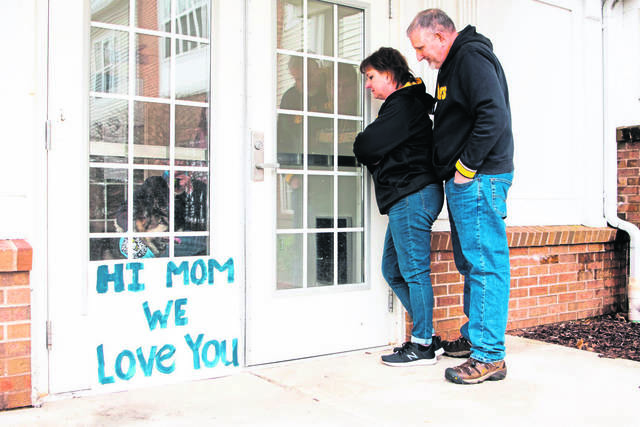At this point in the pandemic, we know that accurately compiling and reporting data is a critical tool for tracking and slowing the spread of covid-19. When the Pennsylvania Department of Health announced back in May that it would begin publicly reporting cases in long-term care facilities, I celebrated the announcement as another step toward protecting Pennsylvania’s most vulnerable population.
However, despite multiple pleas from Pennsylvania Health Care Association and other organizations, DOH data as reported on its website remains woefully inaccurate. Despite the fact that long-term care facilities throughout Pennsylvania must report to several databases for both the state and federal government, DOH reporting remains inconsistent with those reports.
The impact of this inaccurate data can’t be understated. These data points aren’t just numbers. They’re our grandparents, parents, siblings and friends. Take it from me: The worry, fear and sadness that accompany a loved one’s covid-19 diagnosis are heart-wrenching.
Not long ago, my family was faced with the heartache of saying our virtual “goodbyes” through phones and computers to my beloved grandfather.
He is a resident of a personal care home in Southeast Pennsylvania, and despite the staff’s extraordinary efforts to protect him, he tested positive for covid-19. I am overjoyed to tell you that, thanks to the work of those caring for him, my grandfather has recovered from covid-19.
But for two weeks, he was a data point on a daily report. For my family, that single data point represented countless check-in phone calls, nights of lost sleep, and round-the-clock concern. He was never just a data point to us, nor are any of the thousands of residents receiving long-term care mere data points to their families.
Yet one of the most enduring themes of the covid-19 crisis in Pennsylvania and across the country has been the collection and reporting of data, and Pennsylvania DOH continues to publish inaccurate data, adding undue confusion and panic to those with loved ones in long-term care facilities.
These numbers represent real people. They’re family members, loved ones, friends and co-workers.
As an advocate for long-term care providers, workers and residents in Pennsylvania, I’ve seen the devastating toll this virus has taken on front-line staff and our most vulnerable population: our seniors.
Since the first cases of covid-19 were confirmed in Pennsylvania, long-term care providers have worked tirelessly to follow ever-changing guidance from state and federal partners and to take every precaution and preventative measure possible to ensure the health and safety of their residents and staff. And those on the front lines have gone to extraordinary lengths to protect those in their care.
But even these heroic efforts, in many cases, are not enough. Sometimes, the virus enters and spreads through a facility or community anyway.
There are stories like this in every corner of Pennsylvania. Across the state, nearly 70% of all covid-related deaths have occurred in long-term care facilities. And more than 600 facilities are currently reporting at least one positive case.
So while the virus, absent a vaccine, might be impossible to stop, there are ways to mitigate its spread.
In these summer months, one thing is clear: Now is not the time to grow complacent. We must take action and prepare for what’s ahead. That means long-term care providers must have a seat at the table to share critical insights and first-hand experiences, offer best practices and lessons learned, and, most importantly, to identify and prioritize the resources and support so desperately needed by those on the front lines.
Personal protective equipment, or PPE, can stop the spread of covid-19. Testing can help identify who has the virus, providing for better treatment options. Appointing a long-term care ambassador to collaborate and work together with providers to mitigate and contain covid-19 and to protect the residents in our care.
Prioritizing long-term care will ensure Pennsylvanians, like my grandfather, won’t simply become data points on a spreadsheet.
And it will help thousands of families, like mine, know their loved ones are protected, whether they work or reside in a facility or community.
Zach Shamberg is president and CEO of the Pennsylvania Health Care Association.








